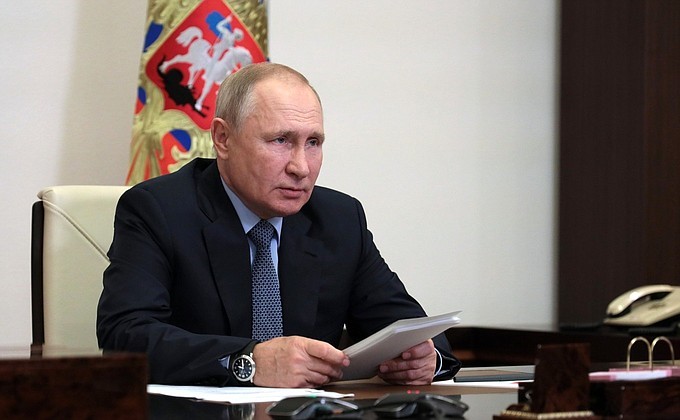“Putin, you just made a big mistake” is the chant resounding around the world today, even inside Germany where tens of thousands demonstrated near the Brandenburg Gate in support of the Ukrainian people. Putin put his nuclear deterrent forces on high alert this week although he knows the West has sworn never to use nuclear weapons first. If the Russian leader believes he needs a “deterrent,” if can only be because of his willingness to move away from a “no first use” of a nuclear weapon policy. This demarcates a critical escalation of the war in Ukraine and pointing towards irrationality by the leading player. The Russian leader’s miscalculations surrounding his Ukraine operation will be more lasting than simple brinksmanship gone awry.
Putin is weakening and, perhaps, dethroning autocratic leaders everywhere as the Ukrainian people inspire others who are not free to rebel. Modern warfare is conducted and broadcast simultaneously today. Analyses of conflicts, for better or worse, are transmitted around the world across the Internet. Often, they are wrong; but sometimes they are right. Putin falsely counted on heavy-handed World War II tactics and kinetic warfare to walk over Ukraine without much resistance. Whether or not he occupies Ukrainian territory successfully in the future, he lost his war. The world better hope he has not also lost his mind.
The Ukrainian people have shown the world they are willing to die bravely in the face of advanced weaponry rather than become servants under an autocratic-run state with a demonic leader. China is distancing itself from Russia, too. There are indications of a deepening fissure in a relationship that never was a true alliance to start, but only one of convenience. The West underestimated the depth of the earlier Sino-Soviet split and has yet to fully recognize the seriousness of their current chasm. Putin needs cash to support his over the border aggression. To retain Russia’s energy income, he moved his country’s gas and oil contracts away from Europe to China this month in anticipation of new Western economic sanctions. Xi readily inked the deal with Putin to buy the critical energy China needs to continue its economic ascent. Here, once again, Putin made a grave miscalculation.
Xi already built two pipelines from eastern Siberia down to China’s heavily populated and industrial eastern coastal area. Now Beijing temporarily has what it needs in abundance – close and relatively cheap energy – to support its maturing economy. Putin simply provided Xi a little more latitude before the Chinese leader and the CCP have to decide how they confront Moscow over the 1 million square miles of energy-rich territory Russia seized at the end of WWII. Paper treaties in the communist world equate to little more than using a sheet of newspaper as kindling to start a fire. Xi, like Putin, announced his plans to reassert China’s rightful place of leadership in the world (from a communist perspective). Unlike Putin, Xi is sharper, more cunning, and better at calculating his opponent’s response while operating under an almost impenetrable veil of secrecy. Putin himself confirmed by his actions he is a paper tiger in China’s eyes now.
At seventy years of age this may be Putin’s last hurrah; although cornered like a skunk he may become more dangerous in the short run for the West. The former Soviet spy, now Russia’s leader, is living in a new world that he still sees through eyes of an old, paranoid, KGB-trained operative. Putin is unable to change his stripes. It is clear there will be no resurgence of a Russian empire without Putin first confronting virtually every Western democracy and doing it without the strong support of China. The Russian oligarchy must be getting edgy at home, too, as Russia is emerging as a pariah state with new economic sanctions looming over their financial empires. How long will the Russian army be willing to continue killing Ukrainians who Putin calls their “fellow countrymen?” Already there are signs the military is unhappy with Putin’s venture. Putin faces many more challenges than just the Ukrainian resistance.
Xi can wait out the time until a post-Putin era emerges in Russia, as it once waited out the post-Unequal Treaties period. The Chinese state today is strong and aggressive. It is beginning to take back what it perceives are its rightful lands. Xi Jinping is watching events in Europe closely while overnight Putin turns into heavier baggage for the CCP. If the West plays its cards well, this could mark a historical point of reignition for a Democratic resurgence around the world. The US most likely will have a new president in the Oval in two years. If he is one who knows how to play the global chess game, Putin’s ill-advised venture could serve as the opening move that initiates a desire for a new democratic golden era of peace and prosperity.
Daria Novak previously served in the U.S. State Department
